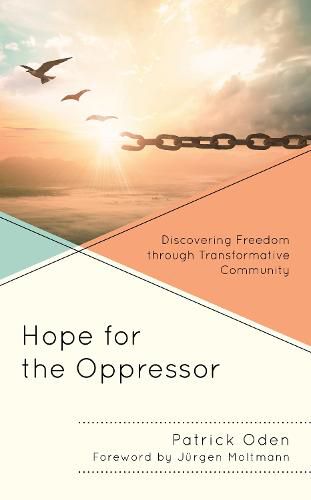Readings Newsletter
Become a Readings Member to make your shopping experience even easier.
Sign in or sign up for free!
You’re not far away from qualifying for FREE standard shipping within Australia
You’ve qualified for FREE standard shipping within Australia
The cart is loading…






The liberating work of God calls the oppressed out of oppression and the oppressor out of oppressing. The challenge in seeking a thorough liberation of oppressors is to help them understand their need for freedom and how to seek this freedom in their own contexts. Patrick Oden provides a holistic biblical, historical, and theological analysis that diagnoses the underlying motivations and inclinations that lead to oppression. Part one addresses the context of oppression, in which most participants in oppression do not actively seek to harm others but are caught up in systems that tend toward the diminishment of others. Part two examines the biblical and early Christian response to oppression, discovering a thread that avoids condemning participation in society generally while also cautioning the people of God about being co-opted by society. Part three discusses how oppressors can withdraw from oppression, through a constructive analysis of four contemporary theologians-Wolfhart Pannenberg, Jurgen Moltmann, Sarah Coakley, and Jean Vanier-each of whom contributes to a widening vision of liberated and liberating life in which the once-oppressed and former oppressor can find peace together in community.
$9.00 standard shipping within Australia
FREE standard shipping within Australia for orders over $100.00
Express & International shipping calculated at checkout
The liberating work of God calls the oppressed out of oppression and the oppressor out of oppressing. The challenge in seeking a thorough liberation of oppressors is to help them understand their need for freedom and how to seek this freedom in their own contexts. Patrick Oden provides a holistic biblical, historical, and theological analysis that diagnoses the underlying motivations and inclinations that lead to oppression. Part one addresses the context of oppression, in which most participants in oppression do not actively seek to harm others but are caught up in systems that tend toward the diminishment of others. Part two examines the biblical and early Christian response to oppression, discovering a thread that avoids condemning participation in society generally while also cautioning the people of God about being co-opted by society. Part three discusses how oppressors can withdraw from oppression, through a constructive analysis of four contemporary theologians-Wolfhart Pannenberg, Jurgen Moltmann, Sarah Coakley, and Jean Vanier-each of whom contributes to a widening vision of liberated and liberating life in which the once-oppressed and former oppressor can find peace together in community.